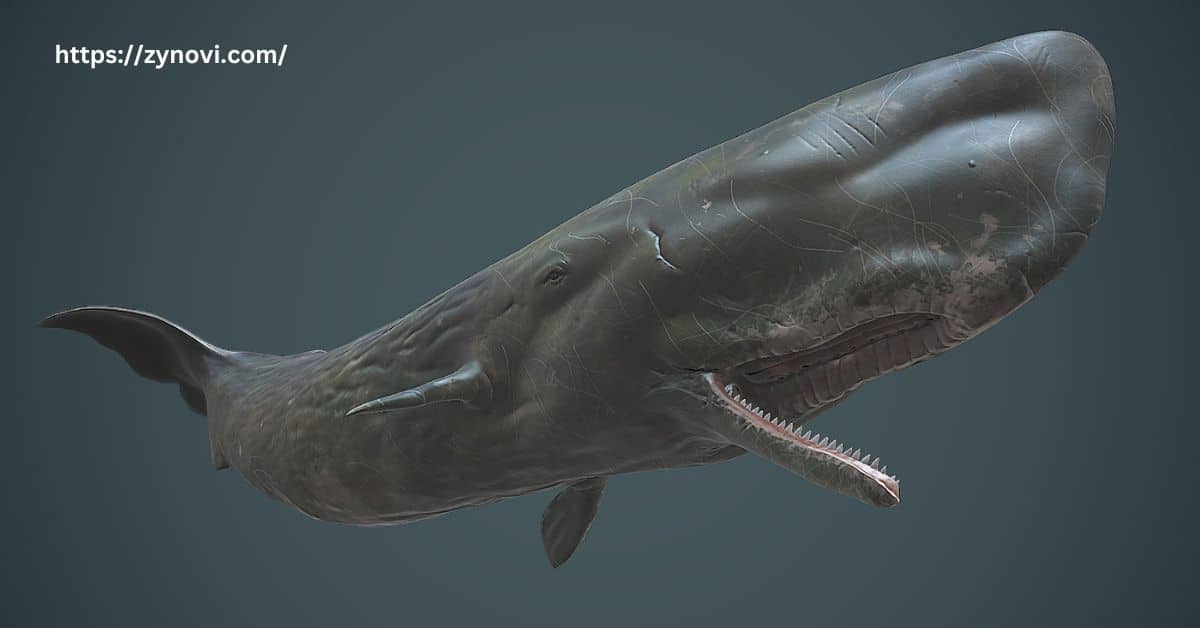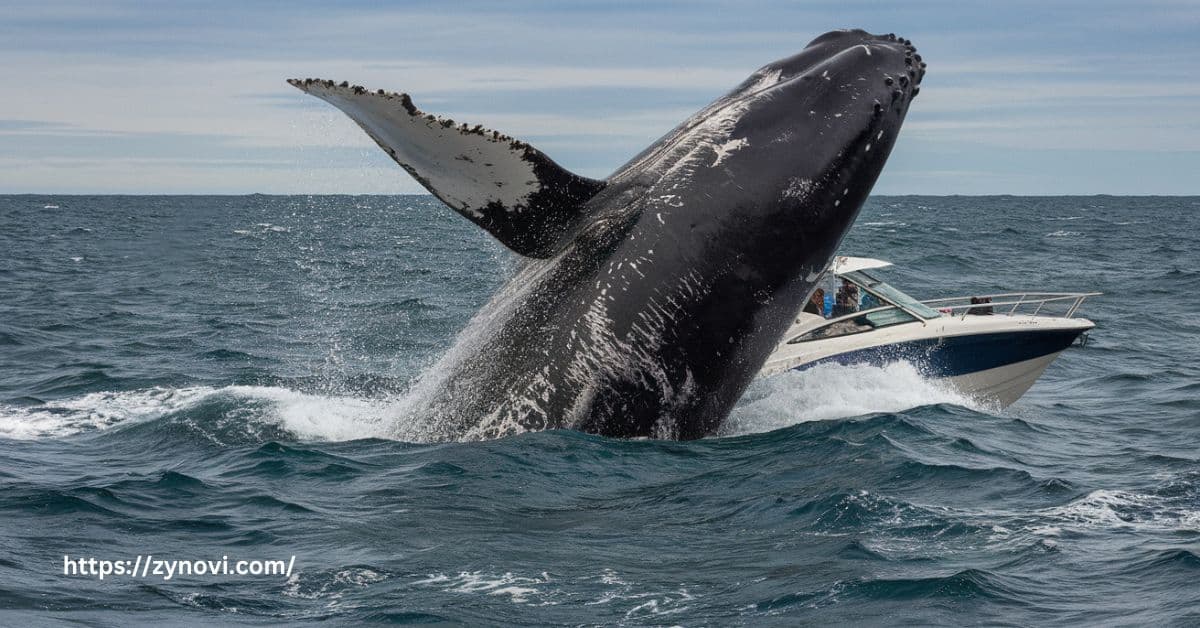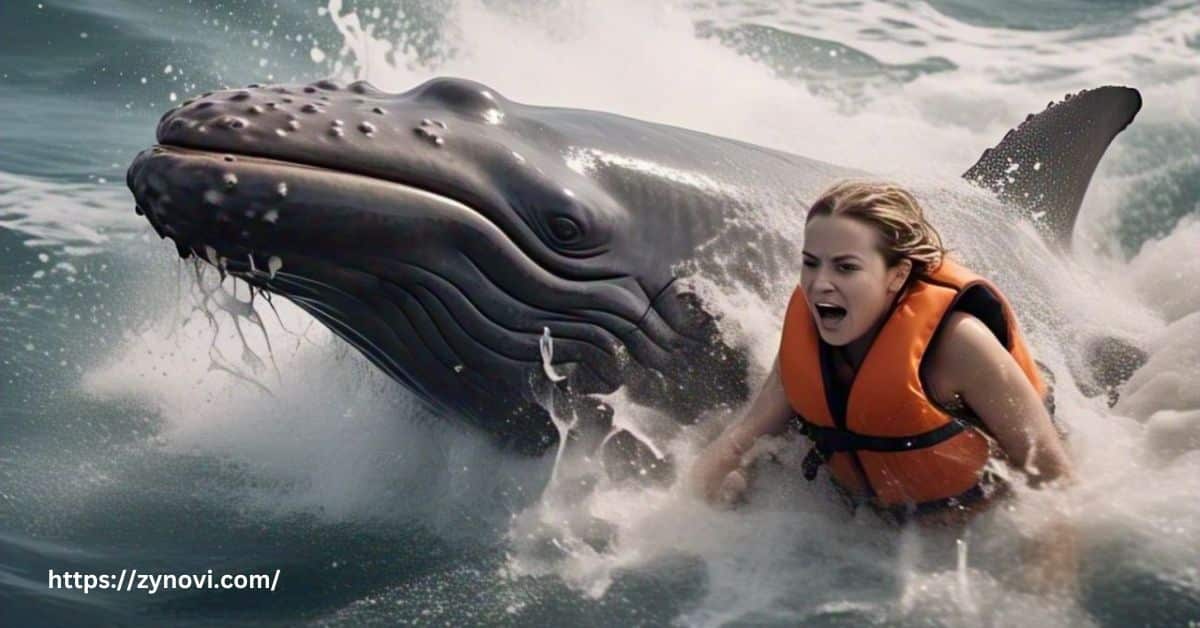Do Sperm Whales Attack Humans? Sperm whales rarely pose a threat to humans; instead, they are usually curious and non-aggressive by nature.
If you’ve ever wondered about these giant sea creatures and their interactions with humans, you’re not alone. Popular media often portrays them as aggressive beasts, but is that really the case? Let’s find fact the fascinating world of sperm whales and explore what’s true and what’s just myth.
In this article, we’ll uncover the surprising truth behind sperm whale behavior, their natural instincts, and how they really interact with people. Stick around, and you might just see these majestic ocean giants in a whole new light!
Understanding Sperm Whales
What Are Sperm Whales?
Sperm whales (Physeter macrocephalus) are among the most fascinating creatures in the ocean, often depicted as mysterious giants of the sea.
Physical Attributes
| Attribute | Details |
|---|---|
| Species | Sperm Whales (Physeter macrocephalus) |
| Length | Up to 60 feet (18 meters) |
| Weight | Up to 45 tons (40,800 kilograms) |
| Brain Size | Largest brain of any animal: 17 pounds (7.8 kilograms) |
| Head Proportion | Approximately one-third of their body length |
| Habitat | Tropical to polar oceans, favoring deep waters over 3,000 feet (900 meters) |
| Primary Prey | Giant squid and colossal squid |
| Hunting Mechanism | Sophisticated echolocation to navigate and locate prey in dark, deep-sea environments |
| Diving Depth | Up to 10,000 feet (3,000 meters) |
| Breath-Holding Ability | Can hold their breath for up to 90 minutes |
The Role of Sperm Whales in Marine Ecosystems
Sperm whales are apex predators and play an essential role in maintaining the delicate balance of marine ecosystems. Their diet consists primarily of giant squid, fish, and other deep-sea organisms, which helps regulate the populations of these species.
Furthermore, their nutrient-rich waste, known as whale falls, enriches surface waters, stimulating plankton growth. This process supports the entire marine food chain, highlighting the critical ecological importance of these remarkable creatures.
Do Sperm Whales Attack Humans?

Whales Behave Around Humans
Sperm whales are generally non-aggressive marine mammals. Observations by marine biologists and divers suggest they are more curious than hostile. Their behavior often involves investigating boats or humans without displaying aggression.
Fact: Sperm whales have the ability to recognize threats and usually avoid direct confrontation unless provoked.
Historical Encounters With Sperm Whales
One of the most renowned incidents involving sperm whales was the Essex tragedy of 1820, where a massive male sperm whale rammed and sank the whaling ship Essex in the Pacific Ocean.
This harrowing event inspired Herman Melville’s famous novel Moby Dick.
Despite its dramatic portrayal in literature, most historical accounts of sperm whale aggression occurred during the whaling era.
These incidents were typically acts of self-defense, as whales retaliated against hunters who pursued them for oil, sparking rare but notable conflicts.
Defensive Aggression
- These defensive strategies highlight their resilience and their instinct to protect their social groups in the vast ocean.
- Sperm whales display defensive behaviors like powerful tail slapping and ramming when they feel threatened or cornered. These actions are not indicative of inherent aggression but are instinctive self-defense mechanisms.
- Such behaviors often occur when the whales perceive danger to themselves or their pods, especially calves. Tail slapping, for example, can deter predators or intruders, while ramming has historically been observed during interactions with whaling ships.
“The strength of a sperm whale’s tail can deliver a powerful blow, capable of damaging smaller boats,” explains marine biologist Dr. Sarah Collins.
Misconceptions and Media Influence
Myth: Fictional portrayals, such as Moby Dick, have contributed significantly to the myth that sperm whales are aggressive, fearsome sea monsters.
Fact: In truth, these depictions are far removed from reality. Sperm whales are highly intelligent, social creatures with complex communication and behaviors.
- They are not mindless predators, but rather, they primarily focus on feeding on giant squids and engaging in social interactions within their pods.
- Media sensationalism has distorted their true nature, leading to misconceptions about their behavior.
Interaction With Divers and Researchers
Modern encounters between sperm whales and humans:
Divers, are generally peaceful and marked by curiosity. Divers have often reported whales approaching them calmly, showing their gentle nature. These interactions highlight the sperm whale’s non-aggressive demeanor in the wild.
Marine researchers stress the importance of respecting the whales’ space. Observing from a safe distance ensures minimal disturbance to the whales and allows for safer, more respectful interactions with these magnificent creatures.
Are Sperm Whale Encounters Dangerous?

While sperm whales are massive and powerful animals, their size and strength rarely translate into danger for humans unless provoked. Accidental encounters, such as a diver inadvertently approaching too closely, may cause the whale to feel threatened and respond defensively.
Risk Factors During Encounters
- Size and Strength: Sperm whales, equipped with 8-inch (20 cm) teeth and incredibly powerful, muscular tails, can inadvertently cause significant harm due to their sheer size and strength.
- Defensive Behavior: When threatened or cornered, sperm whales may resort to defensive actions such as tail slapping or ramming, which can be dangerous to nearby vessels or individuals.
- Unpredictable Situations: Loud noises, sudden movements, or unfamiliar disturbances can startle sperm whales, potentially leading to unpredictable and risky behavior.
Table: Comparison of Sperm Whale Encounters vs. Other Marine Animals
| Marine Animal | Typical Behavior Towards Humans | Risk Level | Defensive Actions |
|---|---|---|---|
| Sperm Whale | Curious, non-aggressive | Low | Tail slapping, ramming |
| Great White Shark | Predatory, cautious | Medium | Biting |
| Orca | Intelligent, calculated | Low-Medium | Ramming, biting |
How to Prevent Sperm Whale Encounters
If you’re exploring the ocean or diving in areas where sperm whales are found, follow these guidelines to ensure safety and minimize risk:
- Maintain a Safe Distance: Always keep a minimum of 100 yards (91 meters) between you and sperm whales to respect their space. Approaching too closely can stress the animals and increase the risk of accidental encounters.
- Avoid Provocation: Stay calm and quiet when in their vicinity, avoiding sudden movements or loud noises that might startle them. A stressed or startled whale may react defensively, posing potential risks.
- Follow Wildlife Regulations: Adhere to local and international laws designed to protect marine life. These regulations often specify safe distances and prohibit activities that could disturb the whales.
- Observe From Afar: Use binoculars or cameras with a zoom lens to watch sperm whales without physically approaching them. This allows you to admire their beauty while ensuring their natural behavior remains undisturbed.
- Understand Whale Behavior: Learn to recognize signs of distress, such as tail slapping, erratic movements, or prolonged dives. These behaviors can indicate that the whale feels threatened, signaling you to give them more space.
Tip: Always consult local guidelines when diving or boating in areas frequented by sperm whales.
Final Thoughts:
The evidence overwhelmingly shows that sperm whales are peaceful marine mammals that rarely attack humans. Historical accounts of aggression were primarily tied to whaling activities, where the whales were defending themselves.
Today, encounters with sperm whales are generally safe, provided humans respect their space and natural behavior. As marine biologist Dr. James Foster puts it, “Understanding and respecting these creatures is key to peaceful coexistence in their natural habitat.”
FAQs
Can sperm whales harm humans?
Sperm whales are not typically dangerous to humans, but their size and power could cause accidental harm if provoked.
How aggressive are sperm whales?
Sperm whales are generally non-aggressive, with aggression typically linked to self-defense or provocation.
What is the most dangerous whale to humans?
Orcas (killer whales) are considered the most dangerous to humans due to their hunting skills and pack behavior.
How powerful is a sperm whale bite?
A sperm whale’s bite is incredibly powerful, with teeth that can reach up to 8 inches (20 cm) in length, capable of inflicting significant damage.
Conclusion: Do Sperm Whales Attack Humans?
Sperm whales are far from the fearsome monsters depicted in fiction. In reality, they are highly intelligent, social creatures that play an essential role in maintaining the balance of marine ecosystems. By dispelling myths and focusing on their true nature, we can better appreciate these magnificent beings and promote their protection.
As scientific research continues to deepen our understanding of sperm whales, it’s clear that our relationship with them should be built on respect, conservation, and a commitment to safeguarding their future in the ocean, rather than succumbing to fear.










